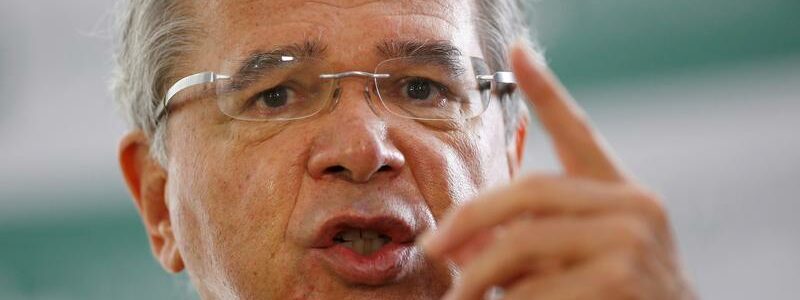
Brazil's Guedes says political conflict mars economy
BRASILIA (Reuters) – Brazil’s Economy Minister Paulo Guedes said on Friday that political conflict is contaminating the economy and overshadowing positive news on economic growth and the prospect of a much smaller primary budget deficit next year.
Guedes spoke to investors as the country’s political climate became even more tense after far-right President Jair Bolsonaro’s request to the Senate here on Friday to impeach a Supreme Court judge. Critics have accused Bolsonaro of sowing doubts about Brazil’s voting system so he can question next year’s election results if he loses.
The political clashes are worsening, Guedes said.
“There is much political noise – it is understandable, but it has to be reduced,” Guedes said.
Guedes also said the budget deficit would drop to 0.3% of GDP in 2022, compared to 1.7% this year.
Earlier, Special Treasury and Budget Secretary Bruno Funchal, speaking on the legal news website Jota, said there was room to revise down the 2022 primary budget deficit, currently targeted at 170 billion reais.
Brazil can expect to see a budget surplus in 2023 as the economy begins to grow again, recovering from the COVID-19 pandemic, Funchal said.
But Funchal said fiscal uncertainty has been causing market turbulence in the past few weeks, with the real currency weakening against the dollar, as investors worry about the public debt and court-ordered payments the government owes.
Funchal said any increase in these liabilities is now the main challenge facing the Treasury, one that will hurt spending on social welfare programs and other government policies if it is not dealt with.
The 2022 budget that the Economy Ministry will send Congress will include the payment of 89 billion reais ($16.57 billion) in court-ordered obligations, and discretionary spending will have to be reduced to allow for that, Funchal said. Discretional spending is projected at 120 billion reais next year, Funchal added.
Funchal said the 2022 budget plan will allow 35 billion reais for the Bolsa Familia welfare program for Brazil’s poorest families, the same amount as this year.
Guedes said the program’s monthly payments to Brazil’s poorest families will be increased in 2022 to about 300 reais on average. Guedes assured investors in a webcast that this would remain within the constitutionally mandated spending cap.
($1 = 5.3711 reais)
Source: Read Full Article